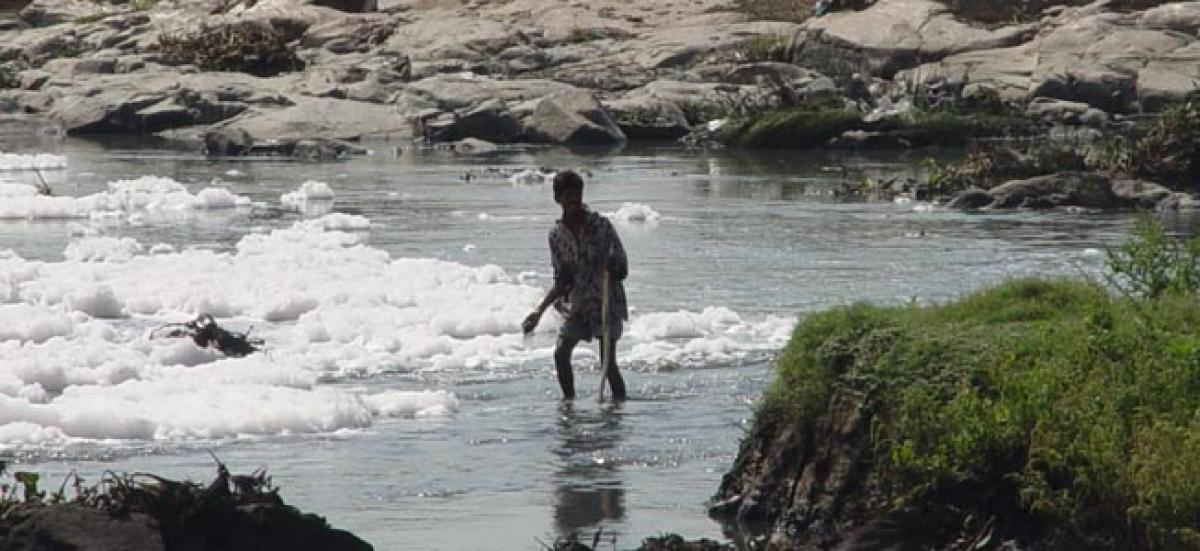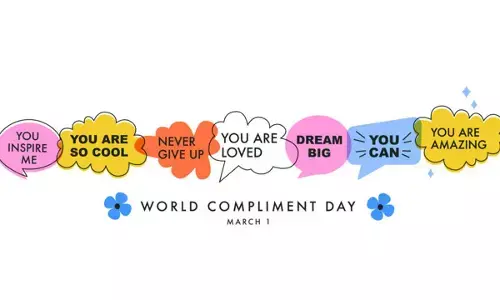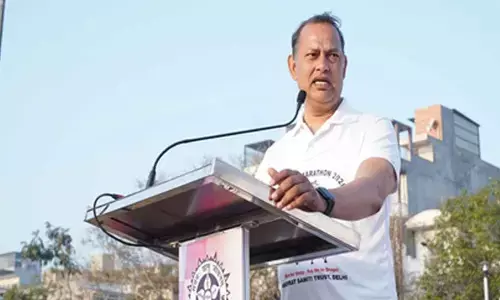Rulers least bothered about environment

Human societies’ impact on environment is a function of population growth, more particularly in urban areas with around present 30% concentration which may reach 60% by 2050, their consumption patterns and their innovative technologies-based lifestyles. We consume resources from healthy ecosystems and make it unhealthy ecosystem over time.
Human societies’ impact on environment is a function of population growth, more particularly in urban areas with around present 30% concentration which may reach 60% by 2050, their consumption patterns and their innovative technologies-based lifestyles. We consume resources from healthy ecosystems and make it unhealthy ecosystem over time.
Unplanned urbanisation, population explosion, agriculture and uncontrolled sewage discharge into rivers and lakes/tanks are primary reasons behind the rise in surface water pollution. Gulf of Mexico turned into a dead zone spreading over thousands of square kilometers with runoff that contains residues of chemical fertilisers & sprays from agricultural farms carried through Mississippi River in USA. We are using groundwater indiscriminately but we are not taking any action on recharging the groundwater and thus causing water pollution. The surface polluted water also polluting groundwater.
Just before Paris climate meet in 2016, Pope Francis released a provocative encyclical on the environment – Laudato Si. Again a few months back, he emphasised that destroying the environment was a sin. He further noted that humans were turning the planet into wasteland of debris, desolation and filth, and called for urgent action. Pope Francis further emphasised that, “We must not be indifferent to the loss of biodiversity and the destruction of ecosystems, often caused by our irresponsible and selfish behavior.” He called for consumers to modify their modern lifestyles by reducing waste, planting trees, etc.
The same was emphasised by UN & US Presidents just before Paris meet. But this was not reflected in the Paris Agreement document. A report of UNEP (United Nations Environment Programme) warns about the rising water pollution in three continents, namely Asia, Africa and Latin America, placing hundreds of millions of people at risk of contracting life-threatening diseases and putting aquatic flora and fauna under extinction threat. It observed that, “The increasing amount of wastewater being dumped into our surface waters is deeply troubling.
Access to quality water is essential for human health and human development. Both are at risk if we fail to stop the pollution.” Stan Cox’s ‘Sick Planet: Corporate Food and Medicine,’ argues that corporate food and medicine industries are destroying environments and ruining living conditions across the world.
In twin cities, with the poor town planning more than 50% of lakes [952] and gardens [415] were replaced by concrete structures. We generate huge quantity (around 2000 million liters per day) of sewage and industrial effluents but we don’t have the capacity to treat at least 25% of such water and, as a result, Musi River and water bodies have turned into cesspools of poison. These in turn pollute groundwater. Reuse of that much water would have reduced the burden on bringing water from far-off places for drinking and other purposes.
We rarely look at precautionary principle; instead of prevention measures, we try controlling measures with which we rarely achieve the stated goal. Also, with isolated control measures, the scenario will not change. Take for example, will the Supreme Court order really improve the industrial pollution? The court needs to look into ground realities such as excess production and zero pollution. Without that, there will not be any improvement in reducing the pollution levels.
In the case of Musi river rejuvenation project or for that matter any other river including Ganga, isolated cleaning operations will not change the river condition except resulting in crores of rupees changing hands. In the case of Musi river, the government must start cleaning up of water bodies and water flow systems from the starting of catchment area and at the same time not allowing industrial effluents going out.
For the last two decades, several agencies studied the quality of groundwater in and around Hyderabad and presented the state of affair, little has been done by the government, except the media presenting those results. Even the Central Pollution Control Board (CPCB) presented its report in 2009. APPCB tried to show lower pollution potential through manipulation, which I countered and brought to the notice of MoEF and CPCB. The CPCB presented its next report wherein it showed increased levels of pollution index. Now it deteriorated further with government mooting Pharma City, a new point to dump both solid and liquid wastes generated.
Instead of controlling pollution from existing industries, the government is trying to increase them with new industrial estates/Pharma City and hospitals. As long as the government looks at health hazards in this direction, pollution will automatically grow by leaps and bounds. (Writer is former Chief Technical Advisor to WMO & UN)
By Dr S Jeevananda Reddy








